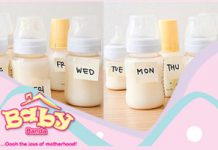Mothers often have questions about which foods are important to eat, how much and which foods should be avoided during breastfeeding. For most breastfeeding women you should have around 2,000-2,200 calories per day but can range anywhere from 1,800-2,700 calories depending on your height and size. This recommendation is based on the amount of breast milk that is consumed by your baby.
Here are some other helpful nutritional guidelines:
Calcium: This is an important mineral for your bones and for other body functions. The recommended daily amount is 1,600 mg: that means 2-4 servings of milk products per day. Good sources of calcium are dairy products including yoghurt, milk, and cheese, broccoli, oranges, sardines (omena), tofu and dark leafy greens such as kales (sukuma wiki). If you are not able to tolerate dairy products then you can talk to your doctor to recommend a calcium supplement.
Vitamins:
Eating plenty of fruits and vegetable will help ensure that you get the vitamins you need. Vitamin D is especially important for your baby’s bone growth and development. You can get vitamin D from eating fish, milk, eggs and butter.
Alcohol:
Alcohol consumption should be limited while breastfeeding. Alcohol levels peak in your system after about one hour and takes several hours to be eliminated from your body and your breast milk. Research has shown that babies may become fussy or consume less breast milk when it has alcohol in it. Alcohol can, in high doses, impair your let-down reflex.
Caffeine: Most babies do not seem to be bothered by caffeine but most health care providers recommend limiting caffeine to two servings daily. Caffeine is found in coffee, some soft drinks, tea, and some over-the-counter medications. Chocolate and cocoa contain a compound similar to caffeine. If your baby seems wakeful and fussy, consider how much caffeine or cocoa you are consuming.
Drink Plenty of Fluids
Breast milk is made up of 87% water. As a result, your body will need some extra water and juices while breastfeeding. Eight to ten glasses each day is usually recommended, but you should drink whenever you feel thirsty. Your body will tell you that you need extra liquids. You will most likely begin to feel thirsty as you breastfeed. A good way to make sure you get enough fluids is to have a glass of water or juice handy each time you breastfeed. Also, if your urine is a pale yellow colour, you are drinking enough fluids (unless you are taking vitamins with B complex which makes urine bright yellow). Be aware, research shows that drinking extra fluids will not increase your milk supply. It is the action of feeding your baby more often and emptying the breasts thoroughly that increases milk production.
Other Foods include
• Carbohydrates ( Bread, cereals, Rice, Ugali, Pasta )
• Fruits Group
• Proteins ( Meat, Poultry, Fish, Legumes, Eggs,)
• Vegetable (Greens, carrots, courgettes)
• Milk, Yogurt,& Cheese Group
• Fat and oils (naturally occurring and added)
• Sugars (added)













